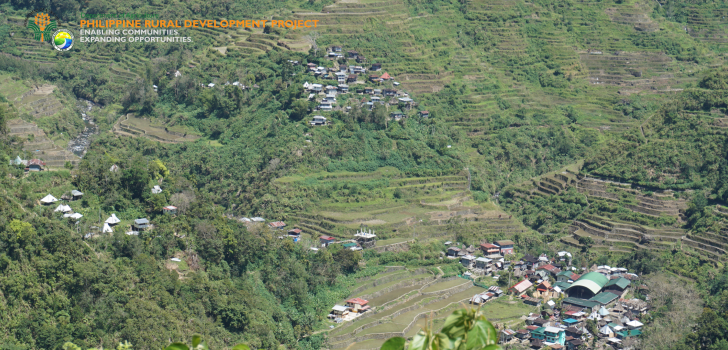
PWS projects: Charting a course towards safe water and sanitation in the Cordillera
Time spent collecting safe water could mean a loss in one’s income opportunities especially for people in a community who spends hours, multiple times in a day, fetching and carrying buckets of water sourced from spring and/or communal tap stands.
Cordillera’s forestlands are a massive headwater source not just for the region, but for its neighboring regions as well. And while spring water sources are abundant, some households have yet to get convenient access to potable water.
Local folks would tap their potable water from the side of the mountain that leads towards the community. Some would improvise water piping, which is prone to damage and contamination, and others opt to fetch from springs even if it takes them hours to carry it to their homes.
During dry season, the main source of water is insufficient to supply the needs of the communities. And during rainy season, the scarcity of safe and clean water becomes a problem and cases of water-borne illnesses increase.
Under the Department of Agriculture – Philippine Rural Development Project (DA-PRDP), more than 3,500 households in the provinces of Ifugao and Mountain Province are now benefiting from seven (7) Level II Potable Water System (PWS) subprojects that were constructed and completed in the preceding years. Another PWS subproject in Mountain Province was recently approved and construction works are about to begin, while eight are in the pipeline for approval or validation.
With varied subproject costs, ranging from PhP2 million to more than PhP6 million, each PWS subproject included the construction of an intake-tank, a distribution tank, and the installation of pipeline distribution network in the recipient communities.
Aside from providing access to potable water, saving time from fetching water, and providing 100% sanitation, these PWS subprojects were proposed to improve health living conditions thereby reducing cost of medical expenses caused by water-borne diseases.
The construction of these PWS subprojects have also brought in employment opportunities for the locals for they were hired as laborers.
Meanwhile, monitoring activities such as the Operations and Maintenance Audit System (OMAS) are regularly conducted by the DA of which good results are evident based from the status of the PWS subprojects as and from the testimonies of subproject beneficiaries as well.
Fridie Lagayon, a beneficiary of the Cambulo PWS and the President of the Partog-Balihong Water Works and Environmental Workers Association at barangay Cambulo, Banaue, Ifugao, shared that the constructed PWS subproject in their village has greatly helped the villagers with their everyday household tasks.
“Agyaman kami ta ada daytoy nga project ket haan kamin nga maki saksakdo ken ada nalaka nga pag alaan ti danom nga pang luto mi, ket ay-aywanan mi daytoy ta pagsayaatan mi daytoy,” Lagayon expressed.
The maintenance of some PWS subprojects is under the barangay local government, while some are cared of by Peoples’ Organizations.
The realization of these infrastructure subprojects is beneficial especially to the vulnerable individuals who are not physically able to carry loads heavy loads, to the women who do most of the household works, and to the children who are susceptible to water-borne diseases.
While PRDP’s main focus is ensuring development of priority commodities with relevant enterprises and infrastructures, the Project also recognizes the complementing role of healthy communities to make these investments sustainable. (Elvy T. Estacio, RPCO-CAR InfoACE Unit)
